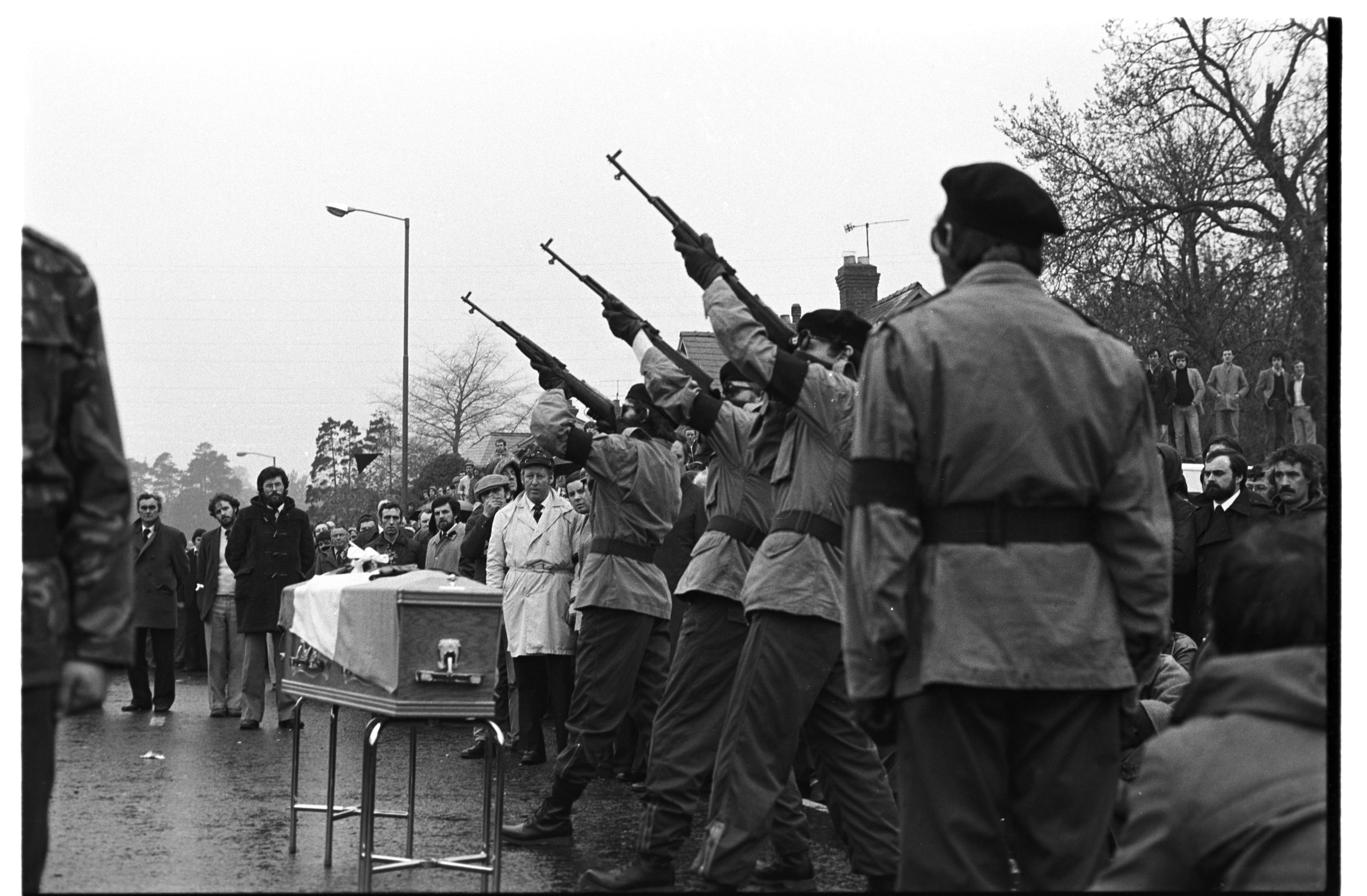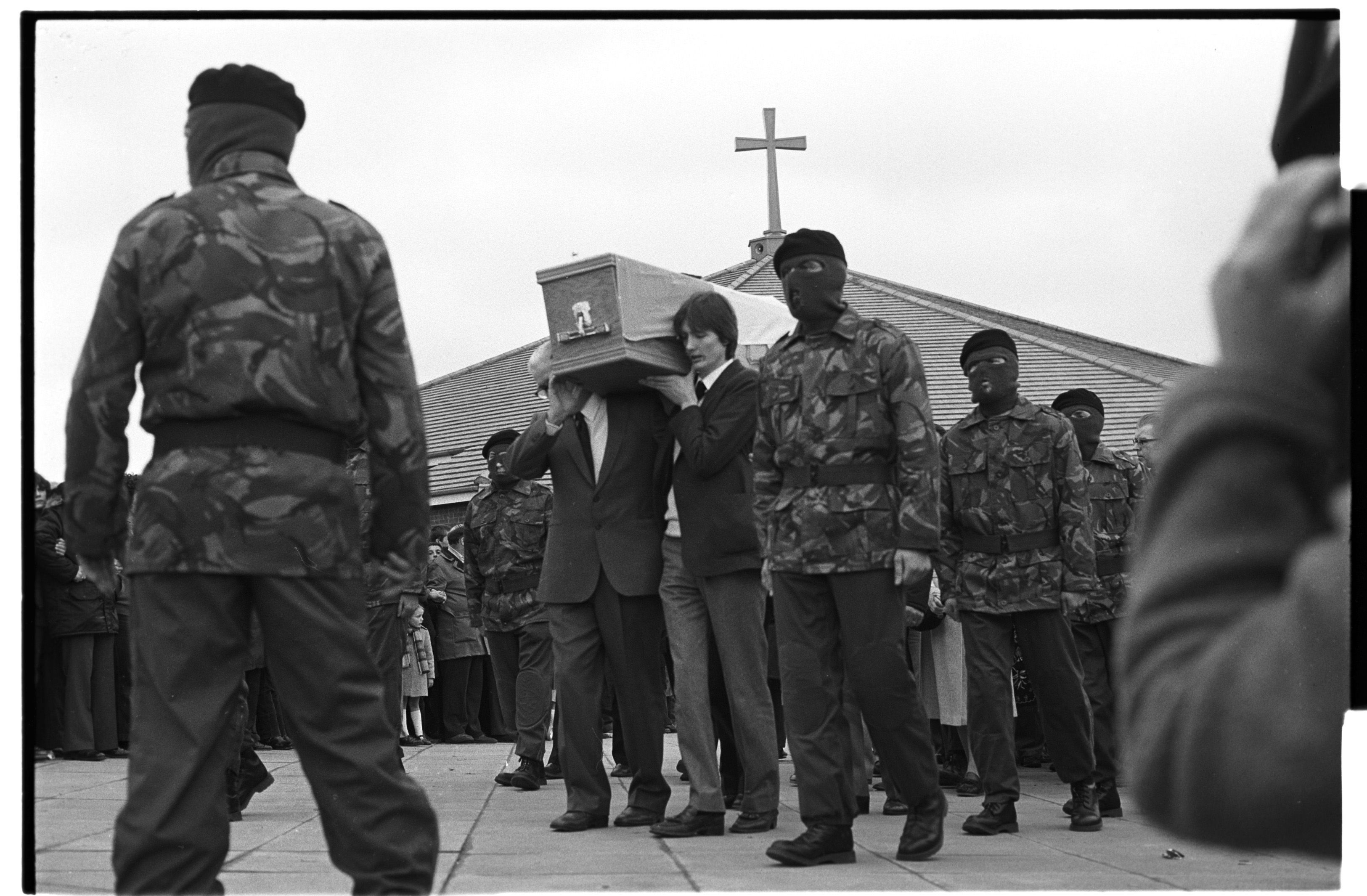We look back at the stories that were making the headlines in the Andersonstown News this week in 1981
Bobby Sands dies after 66 days on hunger strike
By Fr Des Wilson
THE hope is that the sympathy of all our people will be shown to the family of Mr Sands during this time when they are suffering so much because of his death.
They have suffered too much. He has suffered too much. The prisoners have suffered too much.
I believed once that just government was possible even when the English government ruled us. I refused to believe more experienced people who said it was impossible because the English government was racist, undemocratic and vicious. It has only been during the past few years when I personally saw the military aggression of the English government against our people that I realised the truth.
There must be many of my fellow citizens who only see the truth now too. It took a long time. Too long.
During these years in which English military aggression against our people has been at its height, and appeasement of the government has been the policy of every political and religous group in Ireland except the few whose voice was allowed to be heard less and less, I have had the belief that the only hope for Ireland is to unite Catholic and Protestant in common cause against the government that has abused all of us.
That possibility seemed so remote that many people thought it impossible. I believe it possible.
The Protestants of Ireland are our fellow citizens. The English are not. They have been kept apart from us for one reason – not because we hate the Protestants but because the English government decided that as long as we were kept apart we were a conquered people; as the moment we come together in common cause, English domination of our culture, our trade and our country is finished.
Often during the past few years Protestants who realised the truth have said to me: “The Catholics will never get rid of domination from London. The day we join you in that attempt to set yourselves free, the domination is over.”
The militarist clergy, Paisley, Bradford, Smyth, Armstrong, do not represent the best ideals of our Protestant fellow citizens. Those who feel as strongly as any of us and want unity have been initimidated from pulpit and platform until they have no voice. I strongly suspect that in the North of Ireland now there may well be more than fifty per cent of the population who want to be free of English domination. For whatever reason, for whatever motive. But the times, and the politics of the times, are changing.
During all these painful years our people have shown courage, wisdom and tolerance. Their courage, wisdom and tolerance have shown again and again how able they are to govern their country and how shameful it is that they should be subjected to the endless stream of insult, abuse, hurt which the government and its fifth column of ignorant preachers have poured out on them.
May Mr Sands rest in peace. And may his fellow citizens never have to suffer as he did, ever again.
Bobby Sands' family lead the mourners through Twinbrook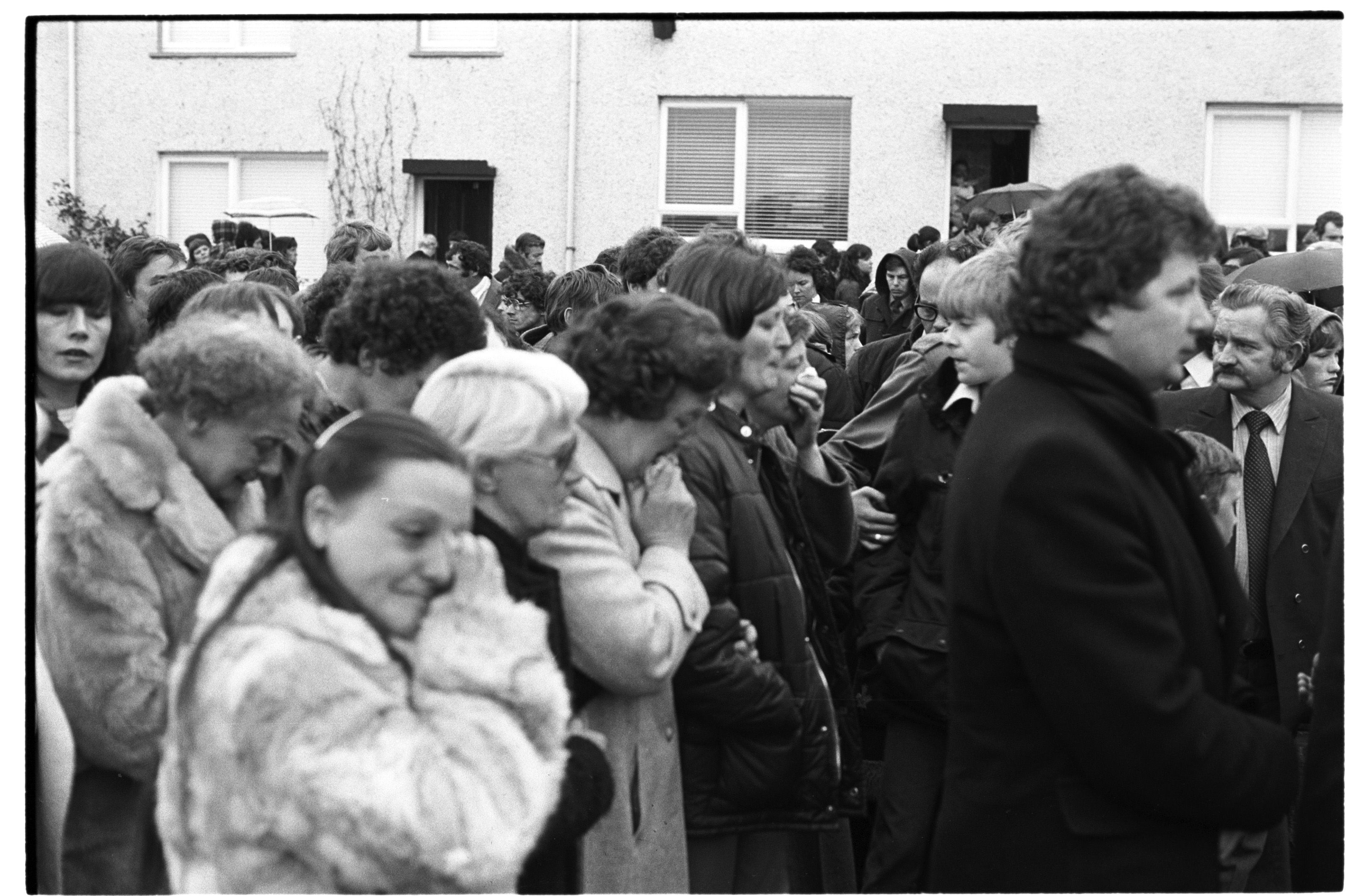
Editorial
“NO greater love has any man, than to lay down his life for his friends.” This statement is appropriate and yet inadequate to describe Bobby Sands’ sacrifice in the H-Blocks of Long Kesh.
Over the past ten years we have witnessed many courageous acts carried out by individuals from all sections of the community, but usually these acts were carried out in the heat of the moment, without much forethought, and as a response to a certain immediate situation.
Bobby Sands, on the other hand, decided to make the ultimate sacrifice after much reflection on the issues involved. He decided to start the fast in order to end, once and for all, the “sobbing and suffering” as he described it, of the young prisoners in the cells beside his own in the H-Blocks.
Bobby Sands was only 27-years-of-age, yet in the Long Kesh context he was a veteran. There are hundreds of young prisoners in the H-Blocks who are barely out of their teens, but who are heroically resisting the full might of the English establishment in its attempt to rob them of their dignity.
The English have hundreds of years of experience in subjugating and degrading conquered peoples. They understand what dignity means to a conquered people, and hence their attempt to rob the Long Kesh prisoners of theirs. We have no doubt that the English would be quite prepared to grant the best conditions in the world to the Long Kesh prisoners in return for their dignity, and this is why Bobby Sands had to die.
Not by the intransignece or insensitivity of the English establishment as John Hume & Co would have us believe, but rather as a cold and deliberate policy to crush the spirit of the unconquerable.
This paper stands unequivocably and steadfastly with the prisoners and their cause. We support the stand they have taken to retain their dignity and more importantly, we stand firmly behind the means they have adopted in their prison struggle.
The issue of England’s illegal and undemocratic involvement in Irish affairs was never as clear as at the moment, and now is the time for complete solidarity of all the Nationalist people in Ireland in a final move to evict the invaders from our shores.
Tens of thousands of people attended Bobby Sands' funeral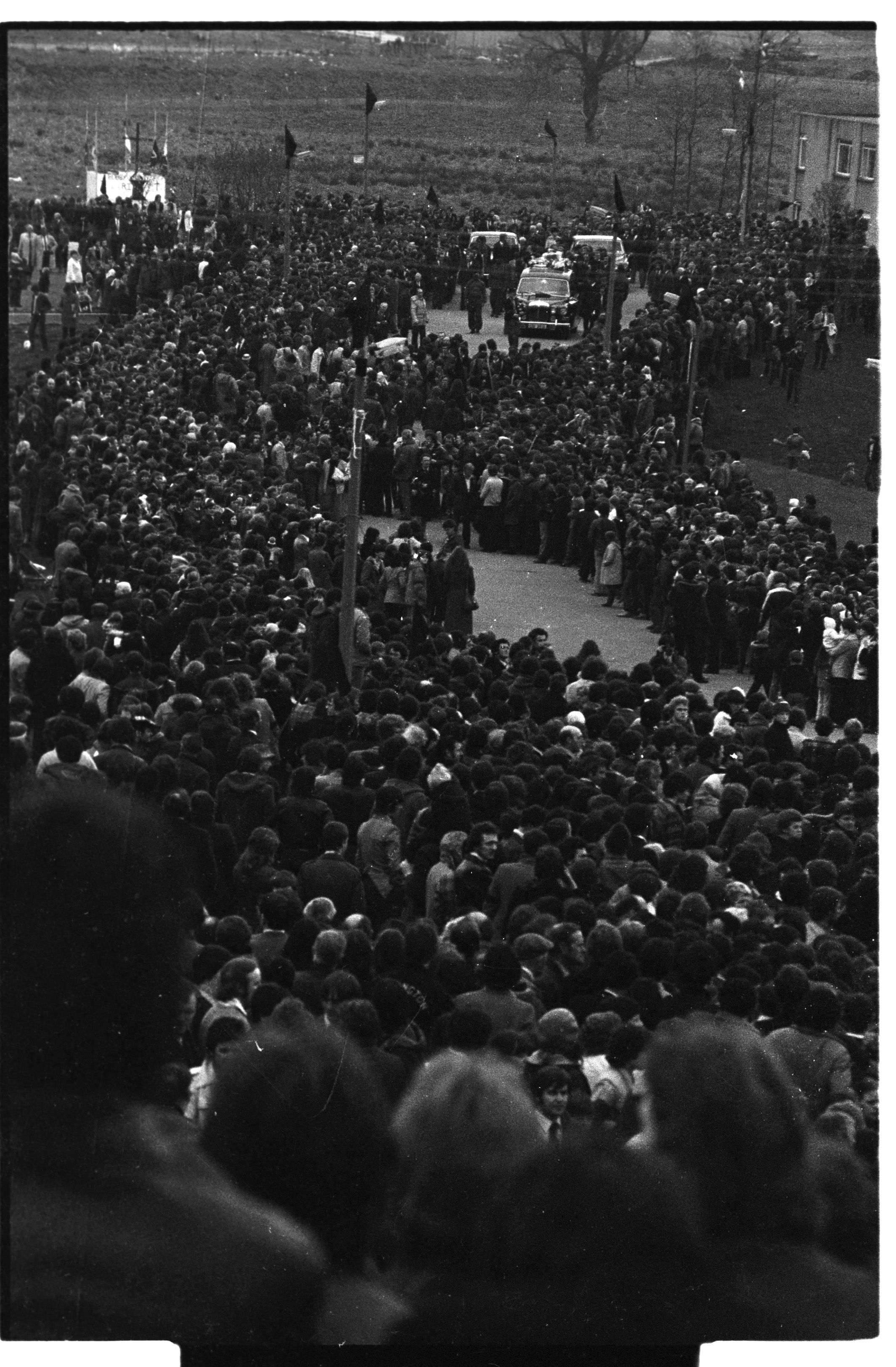
Bobby Sands by an ex-PoW
I heard of the death of Bobby Sands MP with great sadness. I knew him from my years in Long Kesh when we were both declared political prisoners. That was before the H-Blocks.
I was fortunate enough not to endure the agony, the pain and the brutality of that wretched place. Bobby was not so fortunate.
I have heard many bad things said about Bobby Sands recently on the media and from the politicians and churchmen. None of them are true. Bobby was a political prisoner; he had fought the British because the political system didn’t work. Its inability to work was shown never more clearly than in the case of Bobby Sands himself when he was elected MP.
The political process works in Ireland only when it suits British interests.
I remember hearing his guitar playing late at night and him singing at the top of his voice. He often got a response like: “Hey, Rod Stewart, knock it on the head!” Not that that would stop him. He was star performer at concerts in the Cages.
He was good at football with a natural skill for the game. When some of the lads started Irish classes Bobby was there learning his Gaeilge and you’d hear him shouting in Irish too. He spent much of his time reading about Ireland’s history or discussing some political topic or other.
Whatever Bobby Sands was he was never a criminal. He was a revolutionary, no less in stature than Terence McSwiney or Thomas Ashe; and like them he will never be forgotten. However, Bobby Sands cared deeply about the future of our nation and its people; and it remains for us to continue the struggle he had been engaged in.
Paying respects in Andersonstown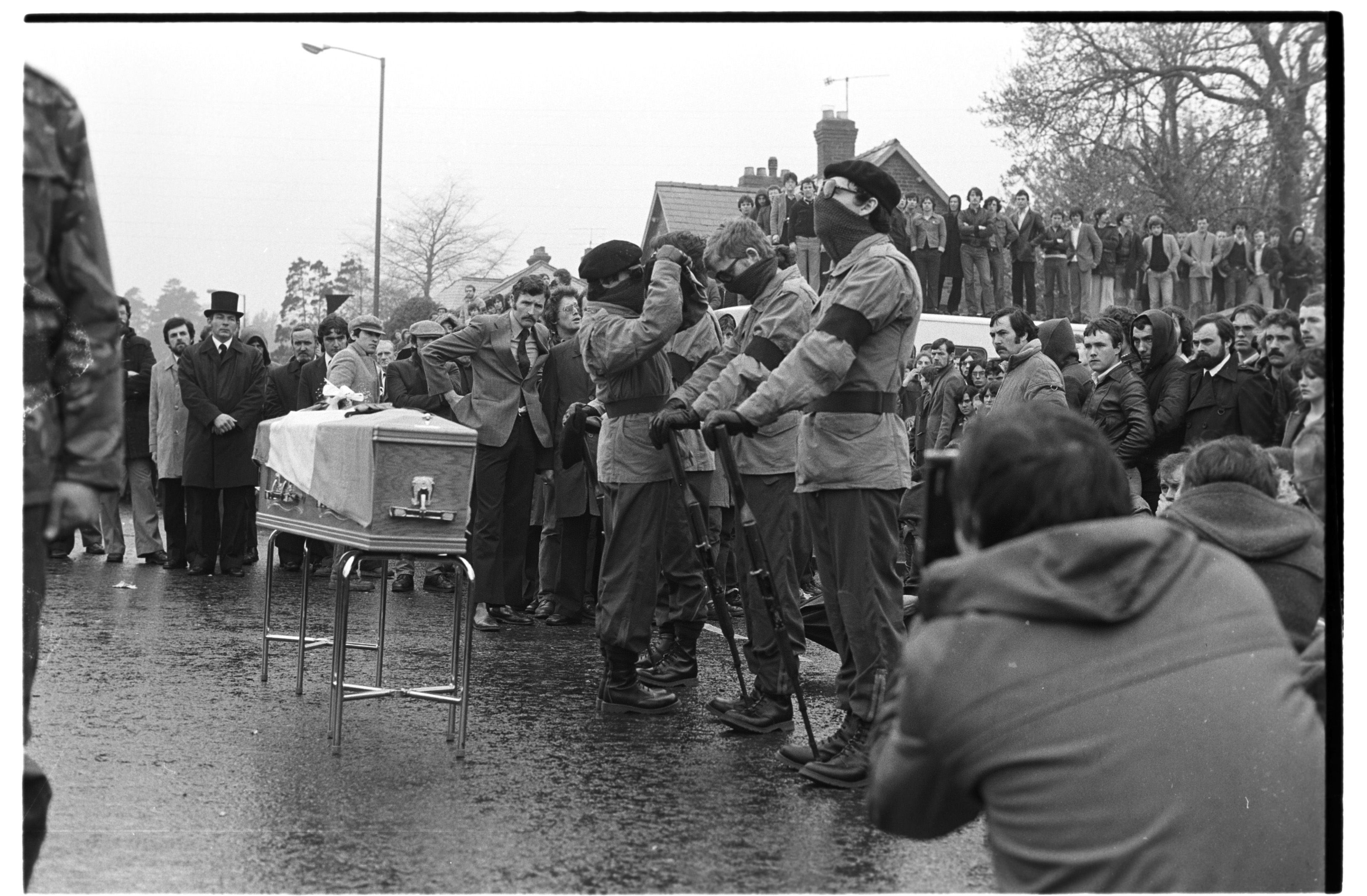
'I'm prepared to die on the blanket'
WHEN visited as the PRO of the Blanketmen by a Sunday News reporter in October 1979, Bobby Sands spoke of his determination to fight – until death if necessary – against the policy of criminalisation.
“I’m prepared to die on the blanket. I will never, never give up,” he said.
Bobby, at the time of the interview, had been on the blanket for over two years. He detailed to the reporter the beatings and ill-treatment he and his comrades had endured during that time. These abuses, however, only served to strengthen the spirit of the blanketmen and failed as had been intended to break the protest.
“The harder the prison authorities lean on us, the more determined we are that we’re right and we’ll never back down,” he said.
The journalist described Bobby as a “grotesque looking figure with filfthy shouder length hair and a long scraggy beard”. She added that “throughout the visit, his hands shook and his whole body trembled. His eyes darted back and forward at the slightest movement or sound, and his face was deathly pale and sunken.”
Last salute